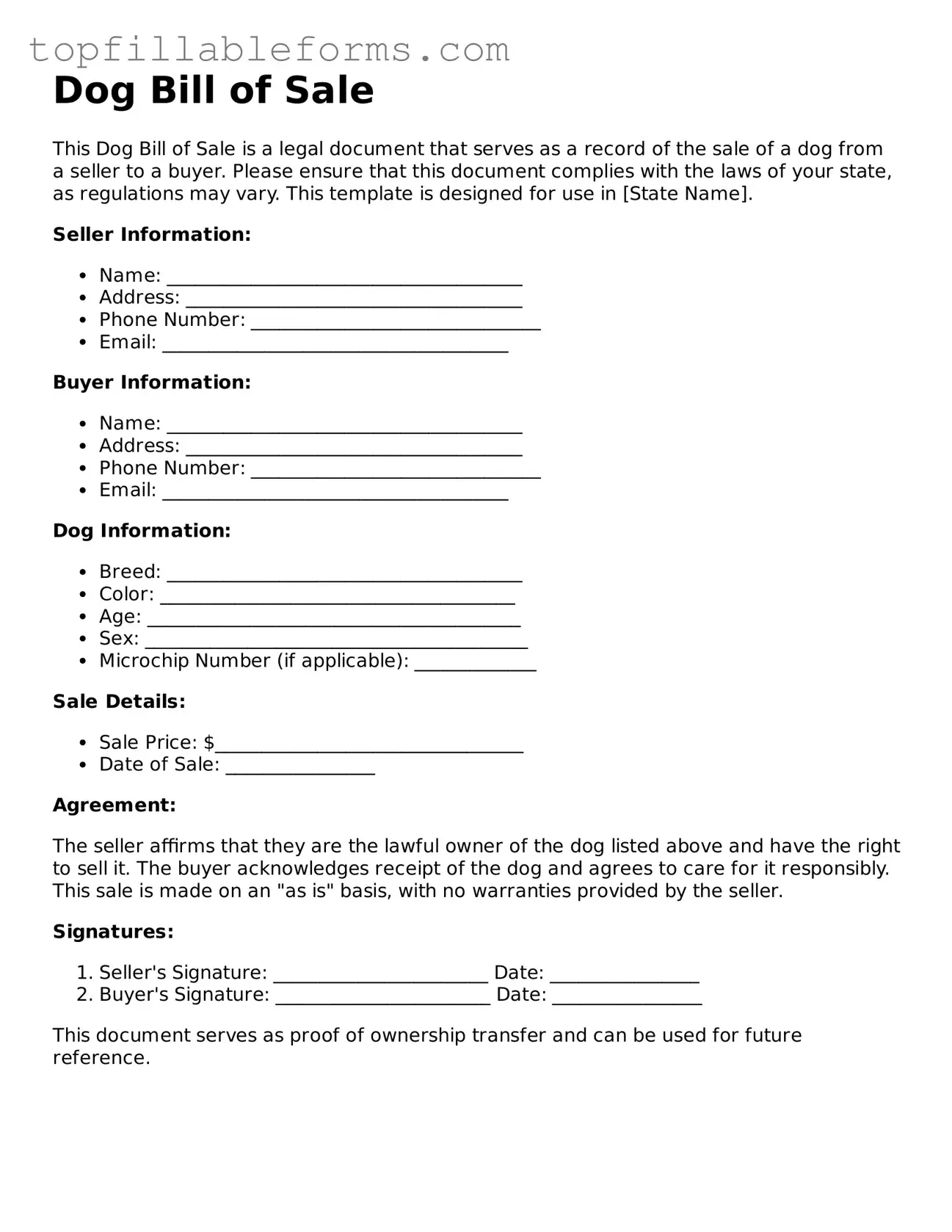Free Dog Bill of Sale Form
The Dog Bill of Sale form is a legal document that facilitates the transfer of ownership of a dog from one party to another. This form serves as proof of the transaction and outlines important details such as the dog's breed, age, and any health guarantees. Understanding its components is essential for both buyers and sellers to ensure a smooth and transparent exchange.
Open Dog Bill of Sale Editor Here

Free Dog Bill of Sale Form
Open Dog Bill of Sale Editor Here
Finish the form now and be done
Finish your Dog Bill of Sale online by editing, saving, and downloading fast.
Open Dog Bill of Sale Editor Here
or
▼ PDF File
